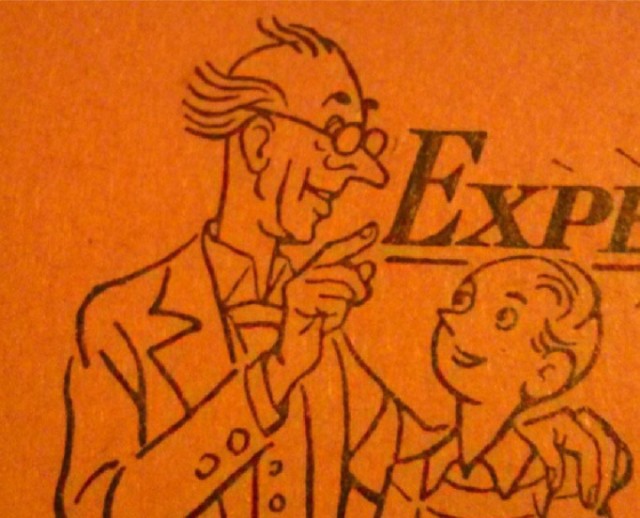Raising Kids to Trust People but Distrust Corporations
by Joshua Michtom

My children are seven and 10 years old, and in teaching them to navigate the world, I find myself swimming against a great tide of distrust in the world. Despite data to the contrary, the prevailing notion among the middle class parents I meet through my kids’ suburban school is that children today simply cannot do the things that we did as children because there are too many lurking perils, principally in the form of bad people who will do bad things if given half a chance. I try to counter this notion, urging my boys to go outside, to explore the blocks surrounding our building, to make the world their own. Of course they know not to get into a stranger’s car, but I think they also know that most strangers are just people like us, people with kids of their own and jobs and places to go. Even when we talk about the people I represent in court (children charged with crimes and adults accused of abusing their children), I try to put bad deeds in the context of complex circumstances: “People are generally good,” I always tell them.
But then this: the 10-year-old is playing some seemingly innocuous game on the iPad when he asks, “Dad, what’s your email address?”
I start to tell him, then hesitate. “Why?”
“It says that if I sign up to get some emails, I can get free points in this game and…”
“Forget it,” I say. “It’s a scam.”
“What do you mean, a scam? They just want to send emails! And it’s the only way to advance to the next level!”
Of course. He thinks people are generally good. What could be the harm in sharing my email address with the folks who already proved how thoughtful they were by providing us with a FREE IPAD GAME?
So that is the dilemma: In everyday interactions, most people are good and kind. But when they organize themselves into corporations, most people are trying to get over EVERY TIME.
When a preschool-aged girl somehow wandered unaccompanied from the school down the street, three strangers driving by (including me) quickly pulled over and hopped out to coral her back inside. But when a group of people discovered a deadly defect in an automobile, they sat on the information for years, at the cost of 12 deaths. Banks will always process larger expenditures first, even when they came in later, to maximize the chance of charging overdraft fees. Voicemail providers will add needless verbiage to their automated messages to squeeze subscribers for a few extra cents per call (“to leave a callback number, press five”). Commercial enterprises are celebrated for the way they increase profits and cut costs, and they frequently do this by screwing customers and workers. They are not to be trusted, and we should view them as marginally hostile and entitled to no sympathy.
This is a tension that I can’t quite distill into useful advice, either for my children, whom I hope will grow up to be socialists, or for our intrepid community of post-American Dream hustlers. It should be a foundational tenet of the New Financial Advice that corporations must be treated with a skepticism bordering on hostility, but it’s also probably more essential now than ever for people to trust and depend upon one another as they try to make their way in a world of growing wealth disparities and vanishing opportunities. I suspect there is a dividing line between the sorts of human interactions that should, by default, be warm and open, and the commercial ones that should be cagey, but I can’t quite define it — like the Supreme Court and obscenity, I know it when I see it:
In my early twenties, in the free-and-easy Brooklyn of the late ’90s, I knew a man who worked with my then girlfriend as a teacher. He was a truly magnetic personality, the sort of person who listened intently, asked questions, and evinced real interest in other people. He was also funny and socially conscious and engaged in the sorts of political and social questions I cared about. Basically, I had a man-crush on him, and it seemed like we were on the path to becoming good friends.
One night, he, my girlfriend, a bunch of other friends, and I were out at a bar, and at some point he and I got to talking at length over beers. After listening for a while to some story of mine about what I was doing at work (I worked for a labor union at the time), he said, “That reminds me, I’m working on this new project, and I think you’ll find it really interesting.” I leaned in, eager to know what this energetic intellect was onto, but my interest quickly turned to disgust: he was selling pre-paid legal insurance through some dubious pyramid sales structure, and he was trying to get me to join his sales team. I still don’t know if he was naïve enough to think he was advancing an important social program to expand access to the justice system, or whether he was an extraordinarily slick huckster. He crossed the humanity-commerce divide and I never hung out with him again.
So, dear readers, I ask you: how do we reconcile the avarice of commerce with the kindness of people? Why did that dude’s pitch offend me so much, while my friends’ pleas on Facebook to fund their artsy Kickstarter projects feel OK? And how old do my children have to be before they can read Capital in the 21st Century?
Photo by the author.
Support The Billfold
The Billfold continues to exist thanks to support from our readers. Help us continue to do our work by making a monthly pledge on Patreon or a one-time-only contribution through PayPal.
Comments